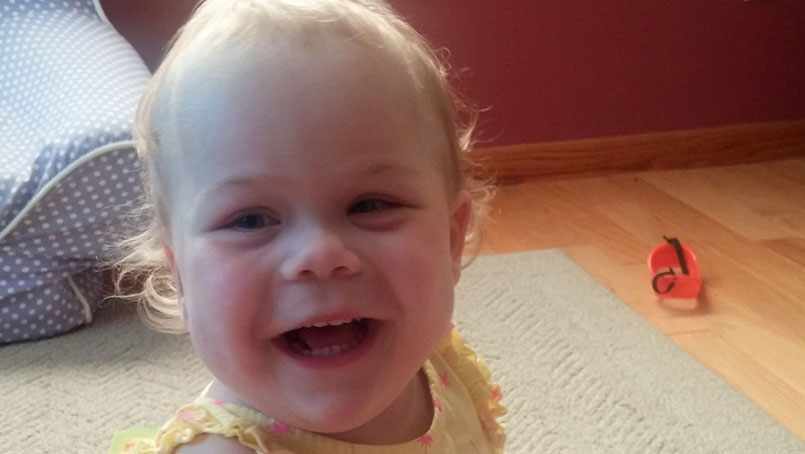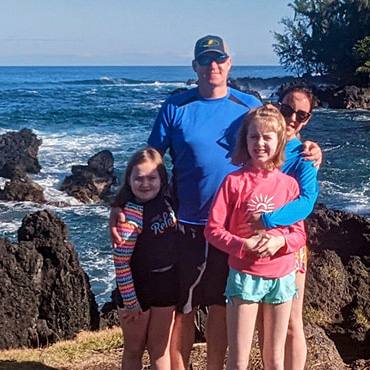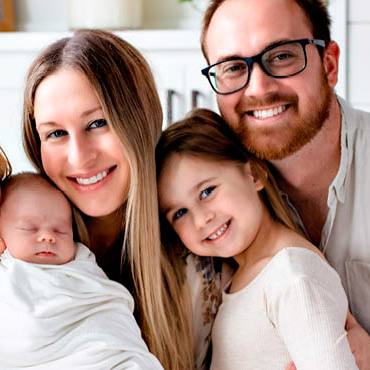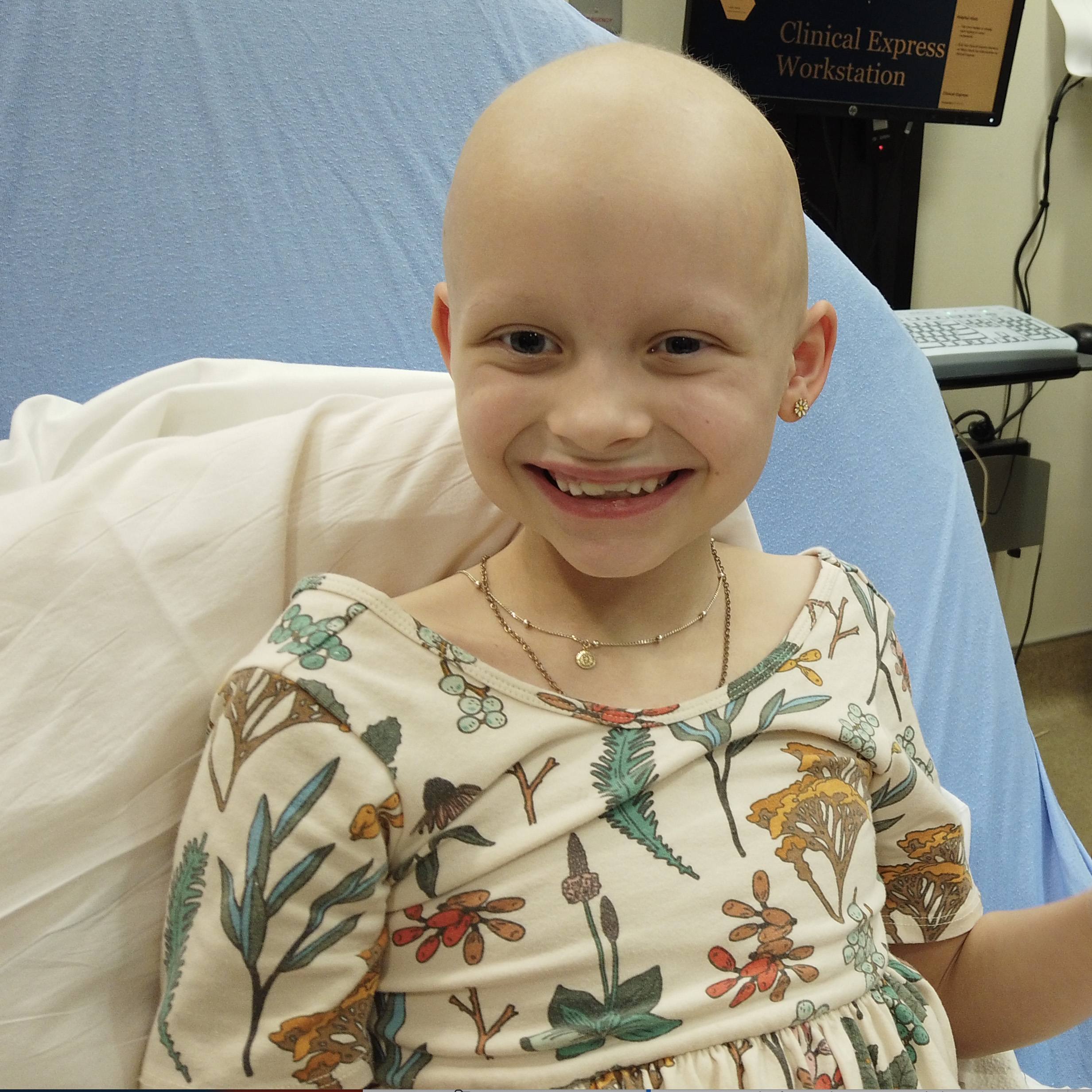 At 27 weeks into her pregnancy with twins, Amber Sylvester went to Mayo Clinic with her husband, Mike, for an ultrasound test and received news that no parent wants to hear. One of the babies was in trouble. She had enlarged kidneys, no amniotic fluid around her body, and fluid in her abdomen. She would likely not survive until birth. Even if she did survive, doctors said she would likely not live long enough to receive a transplant.
At 27 weeks into her pregnancy with twins, Amber Sylvester went to Mayo Clinic with her husband, Mike, for an ultrasound test and received news that no parent wants to hear. One of the babies was in trouble. She had enlarged kidneys, no amniotic fluid around her body, and fluid in her abdomen. She would likely not survive until birth. Even if she did survive, doctors said she would likely not live long enough to receive a transplant.
Amber remembers that appointment clearly. “The tech asked me if my water broke,” she says. “When I saw the concern on her face, I knew that something was not right. All I can remember is crying hysterically.”
Remarkably, both babies remained stable, and at 32 weeks, beyond all expectations, they were born via cesarean section. Addie, however, had a collapsed lung and was diagnosed with severe ureteropelvic junction obstruction, a condition characterized by impairment in urinary flow as it travels from the renal pelvis to the bladder. In severe cases, the condition can cause kidney failure.
After Addie was born, the family and doctors began to discuss a transplant, but to receive the transplant, she needed to be at least 20 pounds. With multiple feeding issues, including an undiagnosed milk allergy and the ureteropelvic junction obstruction, she was not growing at a normal rate and certainly not gaining weight.
“When I saw the concern on her face, I knew that something was not right. All I can remember is crying hysterically.” - Amber Sylvester
“We just didn’t know how to make her grow," Amber says. "That part was scarier than the kidney issues.”
In January 2014, Addie finally met the conditions for transplant and began the pre-transplant work-ups at Mayo Clinic Children’s Center. Amber and Mike both wanted to donate a kidney to Addie. In the end, though, it came down to practical considerations. Amber was younger and had fewer health risks, so she would give Addie her kidney.
“Most people do not know that an adult can donate a kidney to a small child. With most other organ transplants, size is a serious consideration,” says Mikel Prieto, M.D., surgical director of the kidney and pancreas transplant program at Mayo Clinic’s Rochester campus, and the surgeon who performed Addie’s transplant.
After the transplant, Addie improved significantly. Amber says that it was only then that they realized just how sick she had been. “Once we started to see her normalize, we saw how sick she really was and how affected her entire body was,” she says.
For a little girl who was not predicted to make it to birth, she truly was a miracle.
The Sylvesters credit Addie’s miraculous recovery, in part, to her sassy and stubborn attitude, which still serves her well today. One of her favorite things to do is to stand up on a chair and tell her mom to “move-it!”
“I don’t know how he does what he does every day ... He took a hopeless case and completely turned it around.” - Amber Sylvester
Addie celebrated her one-year transplant anniversary on June 23. Her one-year check-up was positive, and she has come back with a lot of energy. Now, she is learning how to walk, is working on eating on her own, and is finally getting the chance to bond with her twin brother. Besides being a bit shorter than her twin brother, Dustin, and having a feeding tube, “she’s just a normal 2 ½ year old,” Amber says. In addition to Addie’s determined spirit, Amber acknowledges the doctor who made Addie’s life possible -- Dr. Prieto.
“I don’t know how he does what he does every day,” Amber says. “He has such a gift. Our lives wouldn’t be the same without him. He took a hopeless case and completely turned it around.”
Amber, a pediatric nurse at Mayo Clinic, works in the same unit where Addie was hospitalized and says she’s thankful for her co-workers who cared for Addie when she was most ill. That was somewhat awkward but also comforting, she says. She knew how good the staff was and trusted them to do a good job. “I trust them with my own patients,” she says, “so I can also trust them with my child.”
Amber hopes that Addie’s story will encourage parents of other transplant candidates and recipients to be hopeful, even in the most challenging circumstances.
“There is a light at the end of a tunnel. We never believed that Addie would still be here … but now she is so happy and energetic,” Amber says. “It’s difficult, but it’s the greatest miracle you could have … You have to keep pushing through the difficult times. In the end, it’ll all be worth it.”
HELPFUL LINKS
- Learn more about organ donation from the United Network for Organ Sharing or Donate Life America.
- Explore the Mayo Clinic’s Transplant Center.
- Check out the Mayo Clinic Children’s Center.
- Request an appointment.
Related Articles







